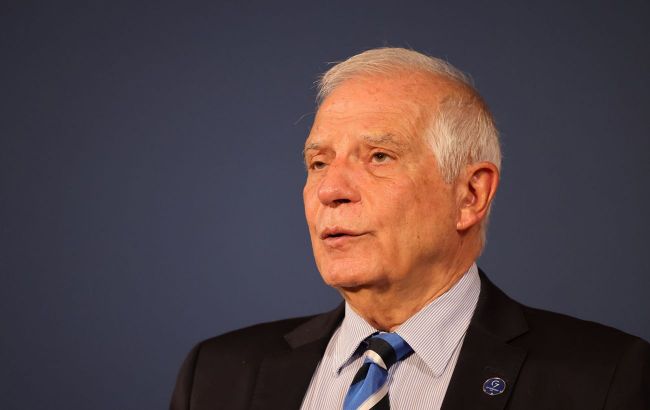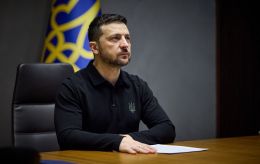EU develops loophole to circumvent Hungary's veto on arms for Ukraine using Russian assets - Borrell
 EU foreign policy chief Josep Borel (Getty Images)
EU foreign policy chief Josep Borel (Getty Images)
The European Union has devised a legal workaround to bypass Hungary's veto on purchasing weapons for Ukraine using profits generated from frozen Russian assets this year, according to EU foreign policy chief Josep Borrell.
He said that since Hungary abstained from the previous agreement on allocating revenues from frozen Russian assets, it should not be part of the decision on the use of this money. Borrell added that this workaround is complex, as any legal solution, but it works.
Bypassing Budapest could also remove an obstacle that might complicate G7 efforts to secure a $50 billion loan for Kyiv by December, which is to be repaid through future revenues—a decision made by leaders at a summit in Italy earlier this month.
Nearly €200 billion has been immobilized in the EU, mostly in Belgium, and the bloc earlier this year agreed to use profits generated in February to purchase weapons for Ukraine.
Hungary has long opposed the EU collectively providing military support to Ukraine. Budapest is also blocking seven other decisions related to arming Kyiv, worth about €6.6 billion.
EU foreign ministers will discuss the legal workaround on Monday, June 24.
Concerns from the US and other G7 partners that Hungary might block the EU's decision to keep Russian assets frozen indefinitely have caused significant delays in negotiations over the $50 billion loan.
According to officials familiar with the matter, the legal workaround for using EU funds will likely be sufficient to ensure the loan's payout.
Confiscation of Russian assets
Western countries, following the start of the military conflict in Ukraine, have blocked about $300 billion of Russian assets. However, the issue of confiscating these funds remains unresolved.
Ukrainian Justice Minister Denys Maliuska suggested that the European Union hesitates to confiscate frozen assets for several reasons. One of them is concerns over the stability of the euro.

